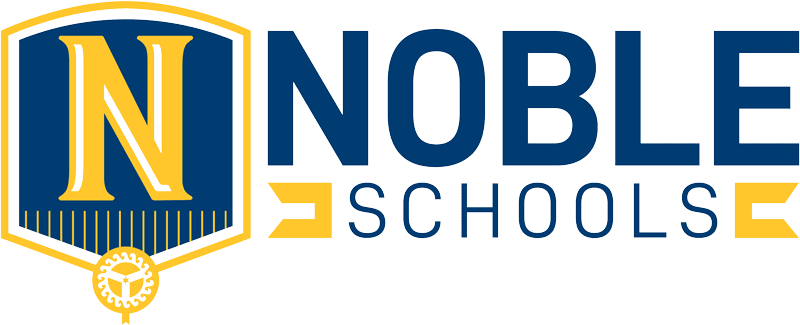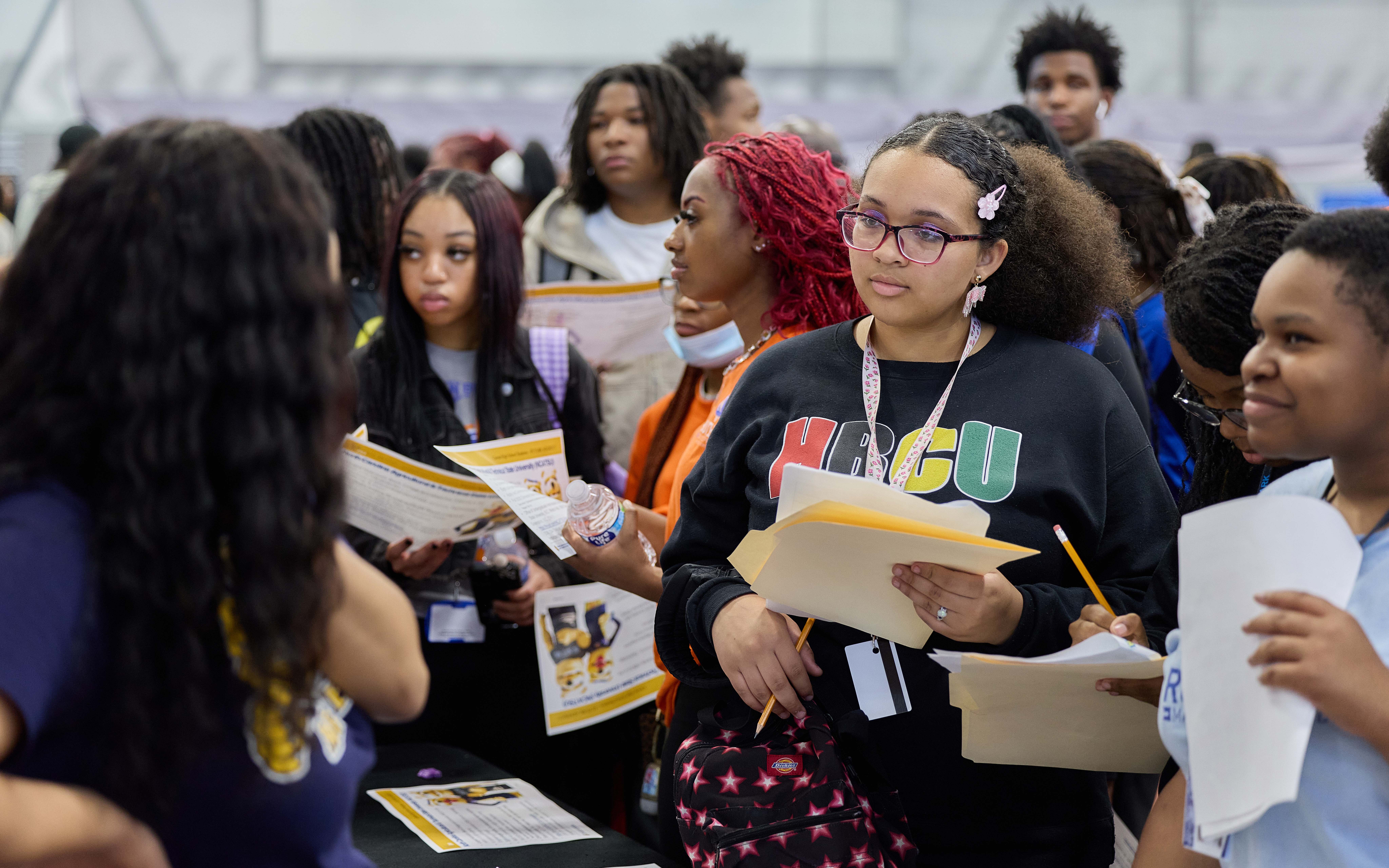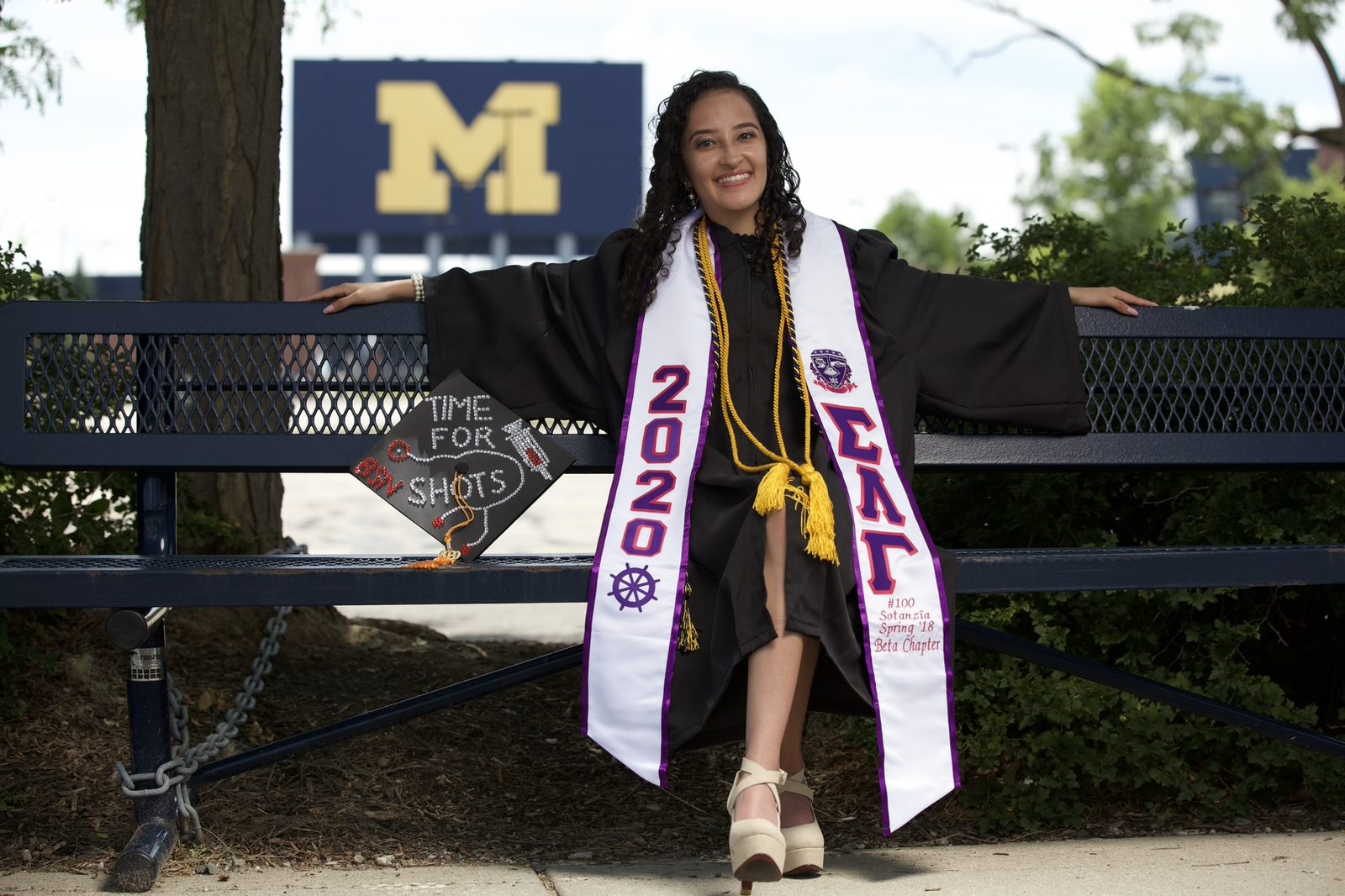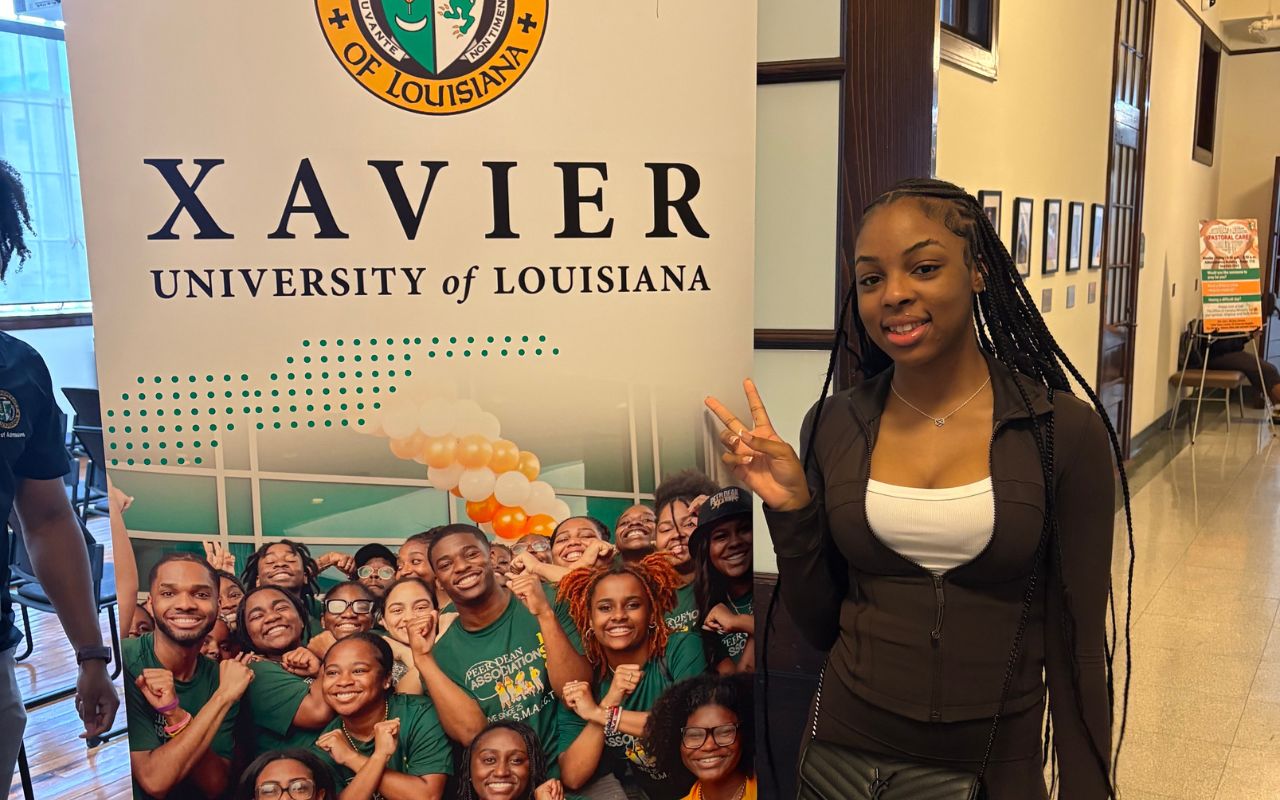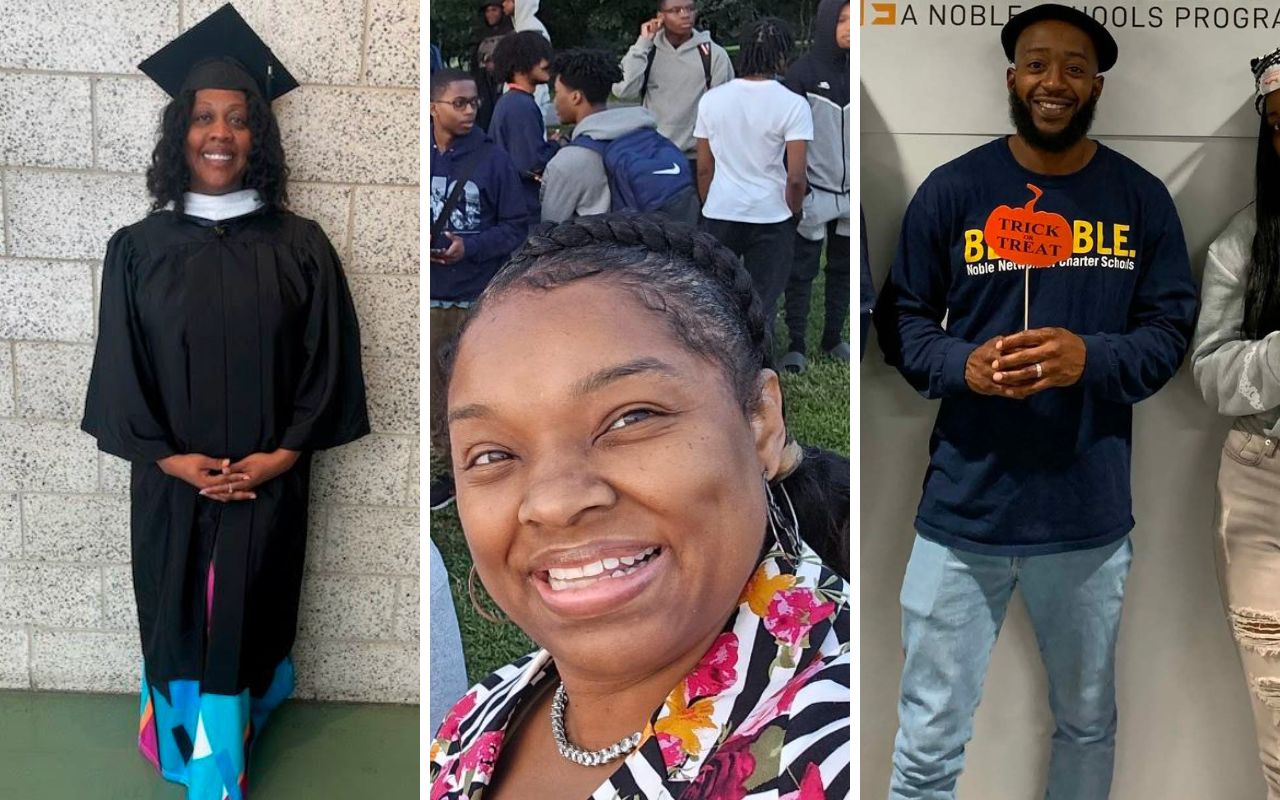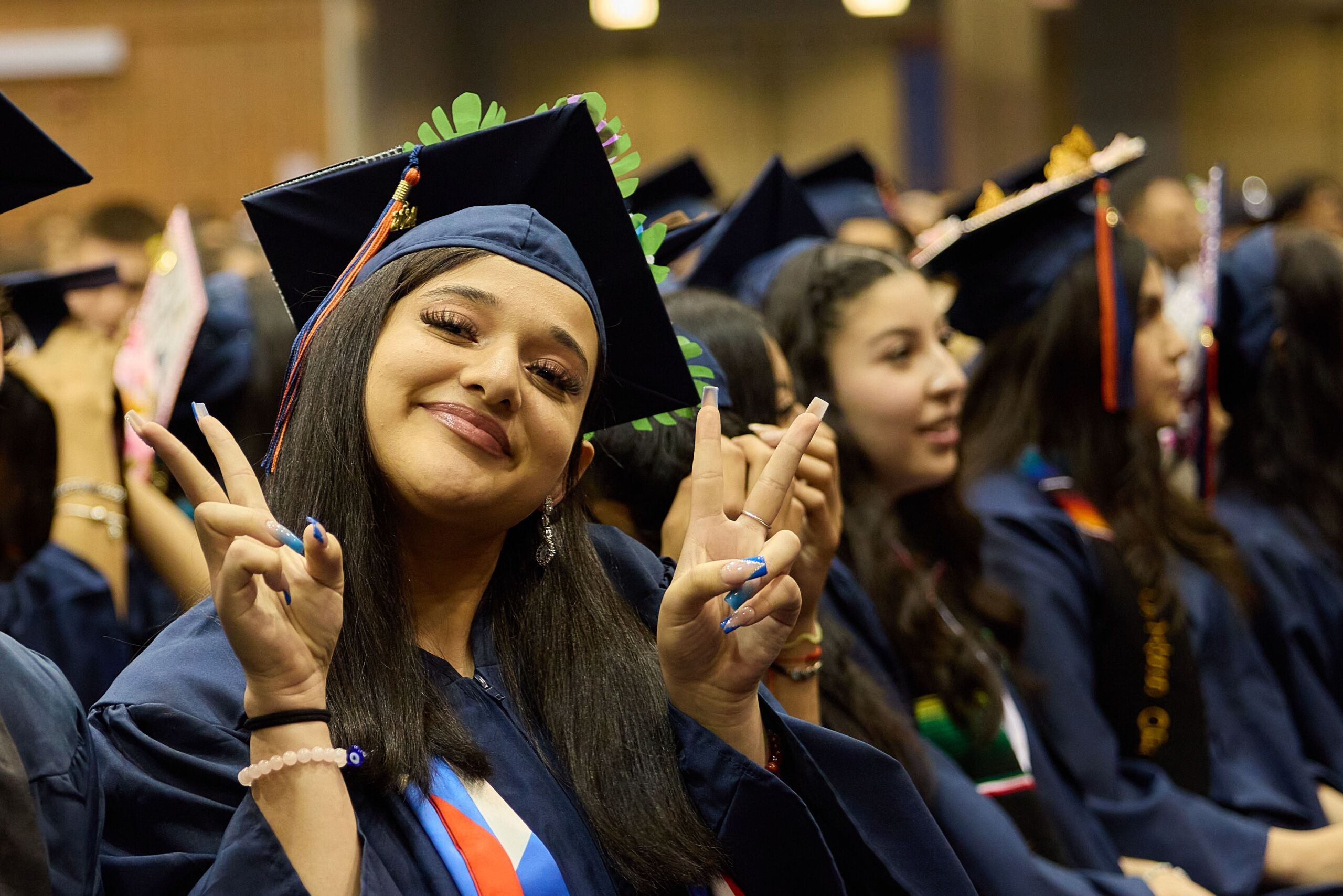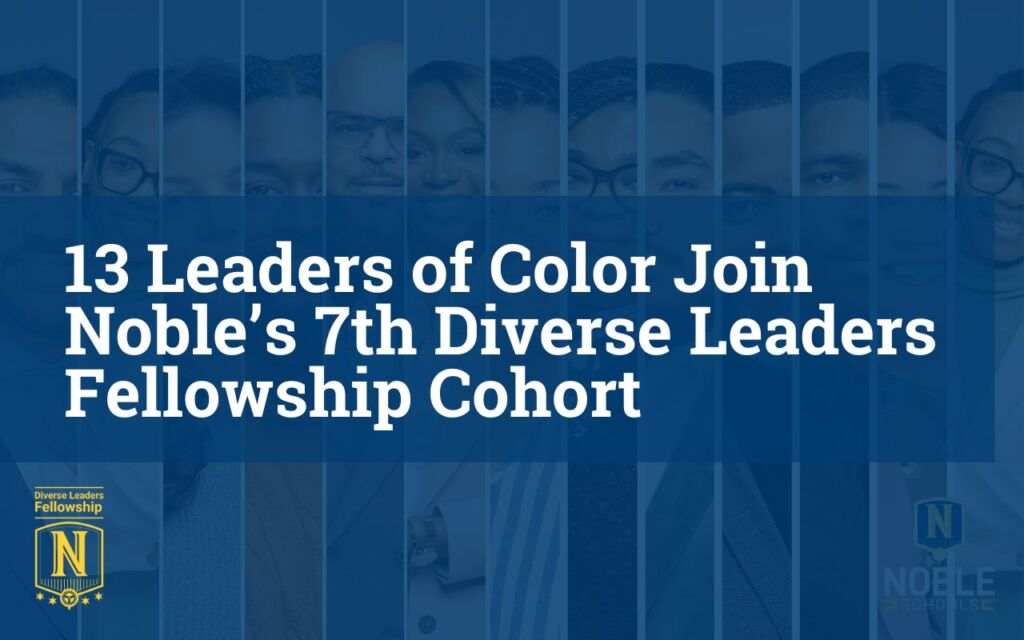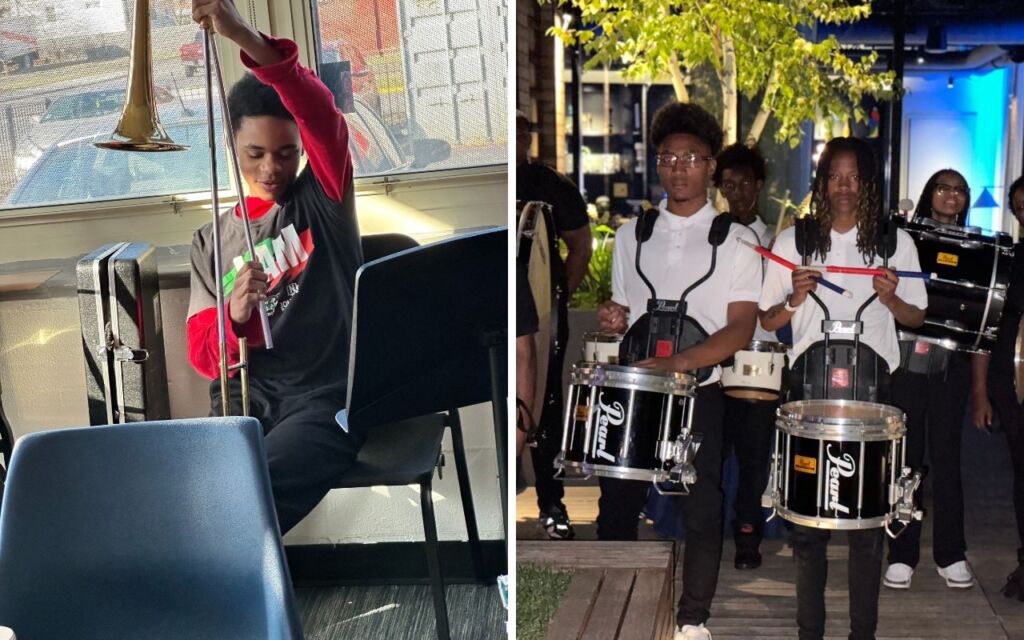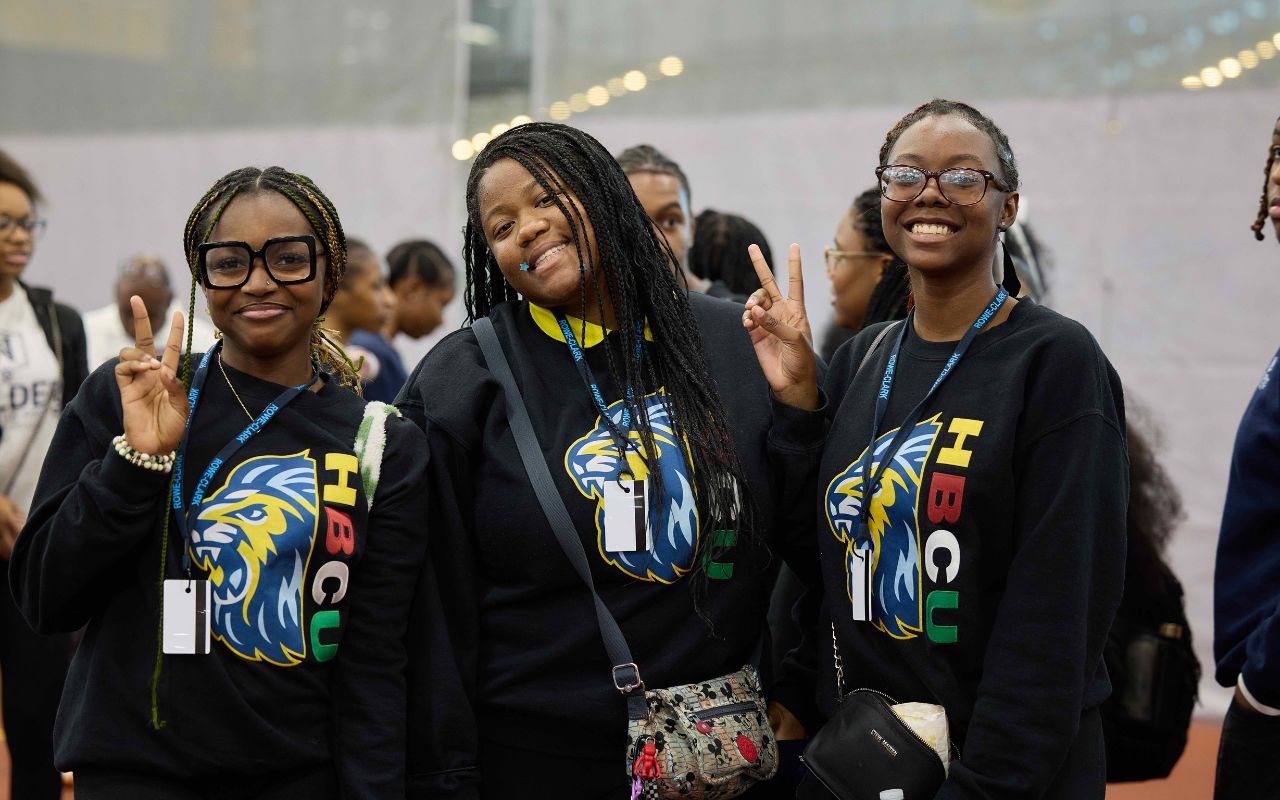
Noble Schools’ 4th annual HBCU College Fair went off without a hitch this semester! Nearly 400 students across all our campuses showed up to talk with college representatives from 16 historically Black colleges, universities, and organizations. This year’s fair even captured the attention of local news.
This network-wide HBCU College Fair has become an important part of Noble’s strategy to prepare our students for college. It provides an essential opportunity for our students to explore HBCUs and what they offer. There are no historically Black colleges and universities in Illinois, and most of them are far away, which makes it difficult for many of our students to visit them. The college fair is a space for them to ask questions to alumni and representatives directly, establish a relationship with recruiters, and even receive on-site acceptances.
“The schools are really nice. I feel like I’m learning more about them. Before I came here, I was like, ‘Yeah, HBCUs are a no-go for me.’ But now I’m realizing it’s not bad. Like, I would actually consider it,” Nicole J., a senior at Baker College Prep, said about the fair this year.
“I was able to ask a lot of good questions that I really needed so I can pick the right school for me,” said Morgan B., a senior from Noble Street College Prep.
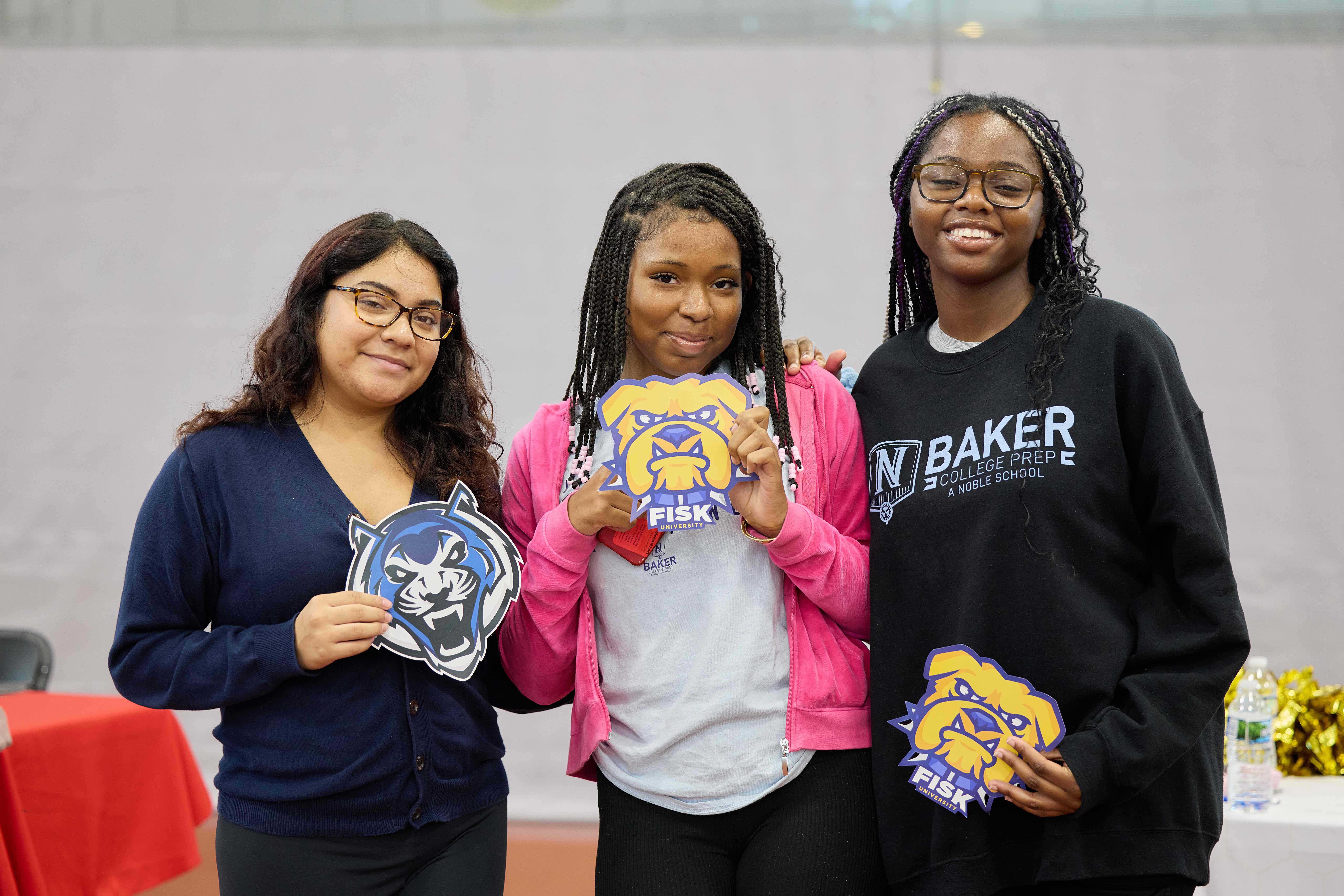
Nicole J. (center) with her two friends Roberta (left) and Tykaha (right) at the HBCU College Fair.
The HBCU College Fair originally started in 2016 at just Butler College Prep— championed by Traci Alexander, a Fisk University alum and Butler college counselor, along with current principal Brian Riddick and former principal Chris Goins. In 2021, Alexander partnered with Sarah MacCallum, senior director of college counseling at the Noble Support Team, to bring the fair to the whole network.
We talked with Alexander about her HBCU experience, the fair, and its importance. She’s been at Butler for twelve years now and has always staunchly advocated for increasing awareness of and access to HBCUs for Chicago students. In addition to starting the fair, she’s also worked with the Butler college team to create an annual HBCU tour for some of their seniors.
Here’s what she had to say:
Q: What motivated you to help start an HBCU college fair at Butler?
A: I remember I used to be in college seminar classes with my 11th and 12th graders, and I would talk about the HBCU experience. And no one knew. No one knew. They would ask me: What does HBCU mean? What are they? Where are they located? Why should I go to an HBCU? There were so many unanswered questions. A lot of times, you know, {students} would choose schools because they heard of them. “Well, my cousin went to Illinois State. Let me put this on my list,” or “You know, my mom told me about Roosevelt University. Let me put this on this list.” So, I thought to myself, if you open their eyes to more HBCUs, then maybe we will send more students to HBCUs.
Q: Why is it important for our students to know that HBCUs are an option?
A: Sometimes, our African American students need to go where they’re appreciated and not just tolerated. They need to be able to go {to college} with like-minded individuals from many different backgrounds and cultural experiences, especially our young Black men. When I think of schools like Morehouse College or Central State University, I think of schools where your professors and advisors care about you going to class. They are knocking on that dorm room door and calling, saying, “I need you to be in class.” Sometimes, our students need a little extra push and sometimes, you get that at an HBCU.
{Students} feel like they’re amongst their aunties and uncles, and they feel just a little bit more comfortable. We know that success usually comes with that comfortability. When they feel comfortable, like they fit in, like they have somebody to go to on campus that reminds them of a relative, then nine times out of 10, they stay and graduate. They don’t come home because of the uncomfortability— that’s what happens with some of our kids. They come home simply because it was a new environment, not because they couldn’t succeed academically—it was more personal and emotional. So, when we tap into all of those different areas of support, then we have a well-rounded student who can actually come home with a degree and not just with debt.
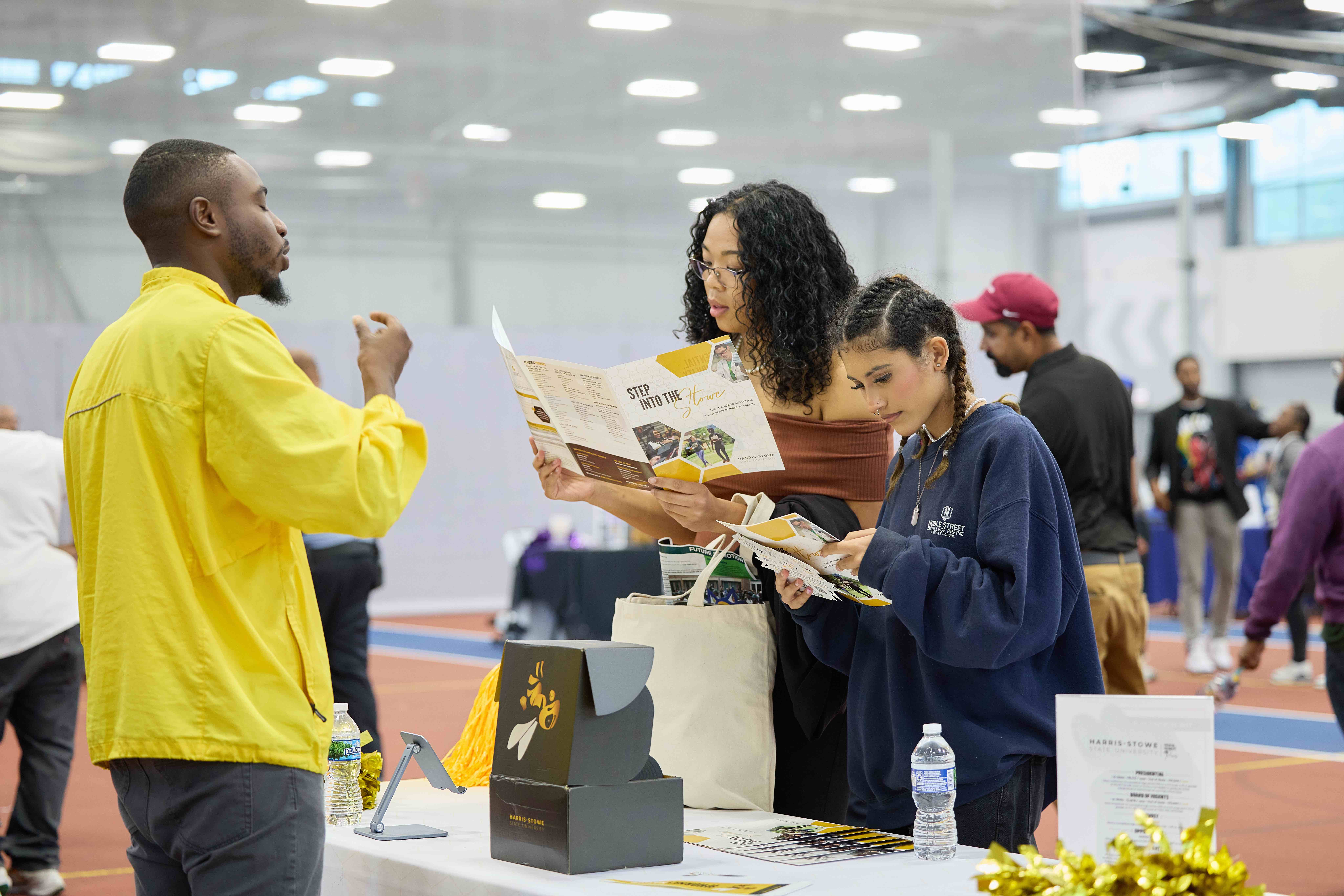
Students spent the fair talking with college representatives, learning more about their offerings and resources.
Q: How did your experience at Fisk University impact you?
A: I had a unique community of support and understanding among the faculty. I had professors who took the time to push me. One I think of is Dr. Appollis. He was from South Africa, and he was the first teacher who marked up my term paper—I mean, marked it up. Every page had a red line. And I remember, I went to his office and I asked, “I feel like I’m a good writer, you know, what’s going on?” And he sat down and took the time to support me with that.
On top of that, I was able to do a lot of life-changing internships. You know, I had the chance to intern at the Voters Rights Institute in Selma, Alabama, I was able to do an internship at Florida A & M {University} where I worked with the 21st Century Leaders.… Fitz really set me up with so many internships, and I felt like I had a community of people. It wasn’t one professor that I felt like I could go to and be vulnerable and transparent with. Like, I could say “Help me, I do not want to go back to Chicago without a degree, but I need support,” and that’s what I got… The support 25 years later is still there. We became a lifelong family.
Q: What advice would you give to students considering attending an HBCU?
A: Do heavy research. Find out the location, the cost, the majors that are being offered. Find out what scholarships you can apply to and apply to them all. It’s just the honest truth that HBCUs do cost a lot more. You have to do all you can to get as much money as possible so it’s not a financial burden on your family. Although you’re going to school, your family still has a livelihood. Everybody can’t take out $25,000 a year for a Parent PLUS loan.
If you want to go to a HBCU, you have to put in the work twice a week. You should be in front of the computer filling out scholarships. You should be reaching out to colleges. Be consistent. Be persistent. Yell your name in those financial aid offices, so when extra money does become available, they’re going to remember you.
